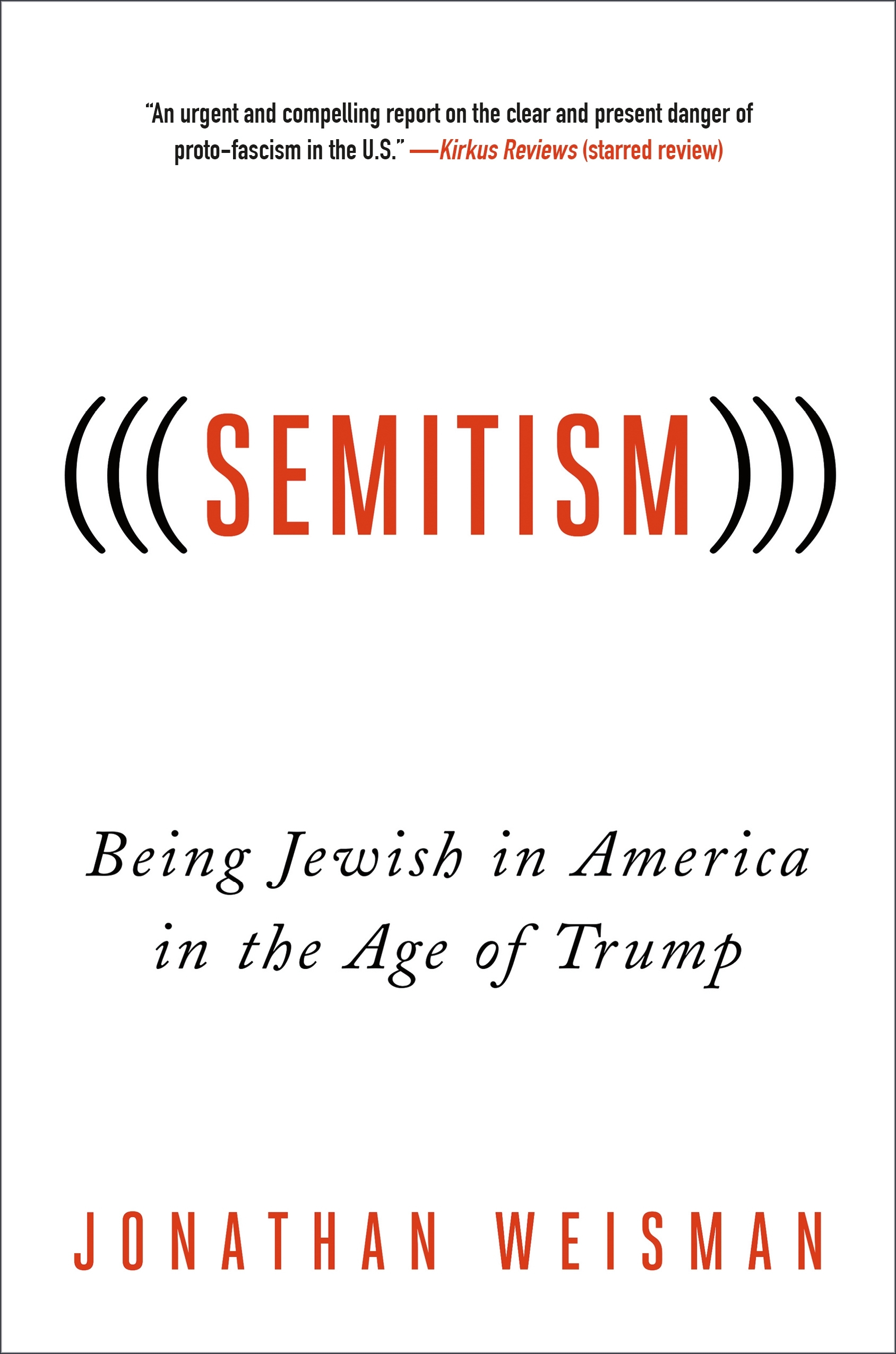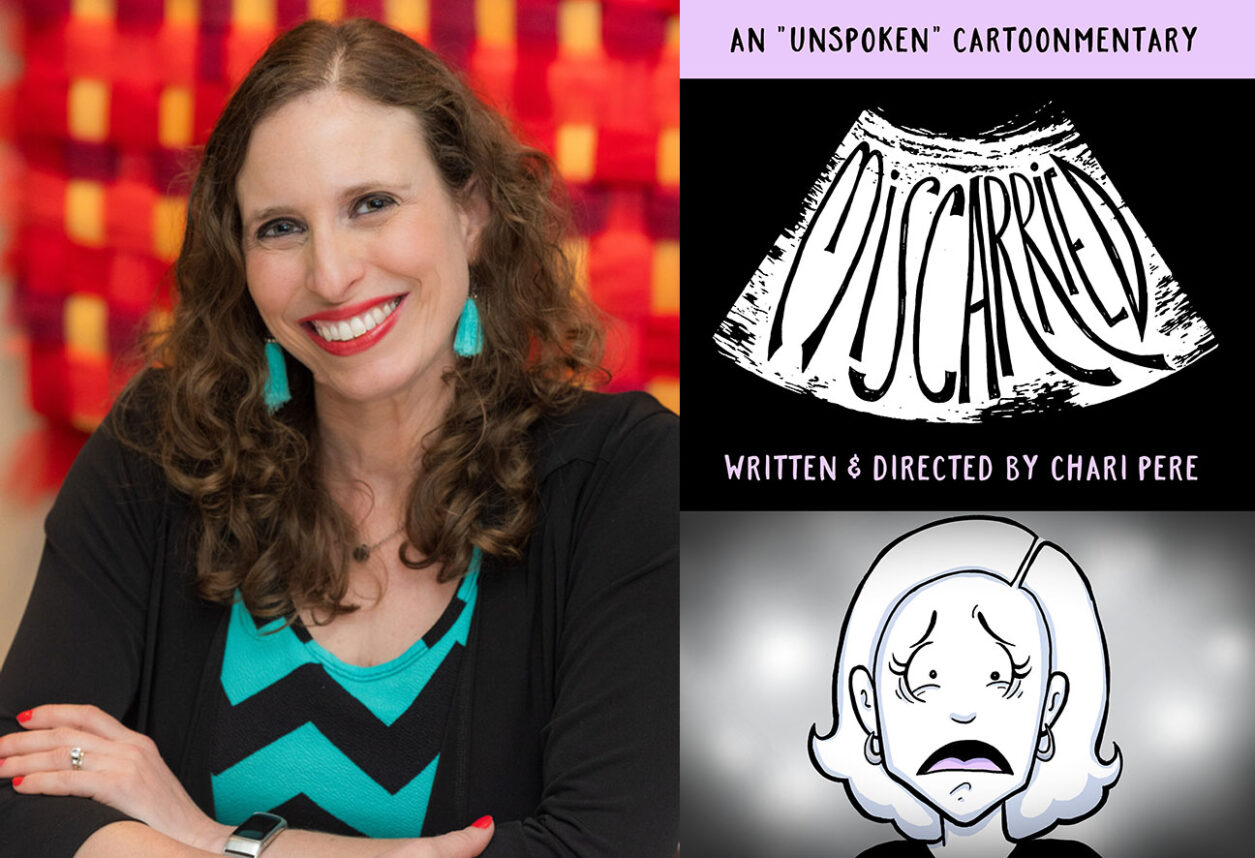
Let’s start by deciphering the strange punctuation that appears in the title of “(((Semitism))): Being Jewish in America in the Age of Trump” by Jonathan Weisman (St. Martin’s Press), the Washington bureau deputy editor of The New York Times. As Weisman explains, those six parentheses are a weapon of the Jew-haters who have always been with us but only recently crawled out from under their rocks.
On May 18, 2016, Weisman posted a comment on Twitter about an article he had read in The Washington Post. “Within minutes, I received a response with punctuation I had never seen before,” he explains. “Hello (((Weisman)))” wrote someone who called himself “CyberTrump.”
Weisman suspected that the “those triple parentheses must somehow denote my Jewish faith,” and he wrote back: “Care to explain?” CyberTrump responded: “What, ho, the vaunted Ashkenazi intelligence, hahaha! It’s a dog whistle, fool. Belling the cat for my fellow goyim.”
Thus did Weisman stumble across “what is known in the alt-right as ‘echoes,’ those three parentheses that practitioners of online harassment wrapped around Jewish-sounding names on social media.” A cunning plug-in device invented and used by online Jew-hunters enables them to search the internet for names of individuals that appear between triple parentheses and then launch a cyberattack against them. Weisman himself received more than 2,000 hate messages that used Nazi iconography, Holocaust denial and various anti-Semitic tropes: “the Jew as conservative fifth columnist, the Jew as moneybags financier orchestrating war for Israel, the Jew as leftist anarchist, the Jew as Wall Street profiteer, the Jew as weak and sniveling, the Jew as all-powerful.”
Weisman has drilled down into the subterranean world that he had detected, and his book explains how it reveals the existence — and the new prominence — of an anti-Semitic subculture in America. “Until the rise of Trumpism, Judaism was easy, not just for me but for millions of American Jews,” he writes. “Anti-Semitism was in the past. The ‘Jewish Question’ was little worth mentioning. And then, all at once, it was.” For that reason alone, “(((Semitism)))” is a book that every Jewish voter should read.
“Anti-Semitism was in the past. The ‘Jewish Question’ was little worth mentioning. And then, all at once, it was.” – Jonathan Weisman
To his credit, Weisman enables us to understand the coded language that is used by the latest practitioners of anti-Semitism. At a 2017 rally at the Lincoln Memorial, for example, a crowd of demonstrators took up an insistent chant: “You will not replace us!” Although Jews are nowhere mentioned, the underlying message was articulated by a speaker who led the crowd through a call-and-response: “Who controls the media, who controls the Federal Reserve, who controls Hollywood, who control Wall Street?” To which they replied: “The Jews, the Jews, the Jews.”
The question that hangs over the entire book is why the civility and consensus-building that once characterized American democracy has been eclipsed by an ugly tribalism and even deadly violence. All signs point to the 45th president. “Whether he knew it or not, Donald Trump ran the most anti-Semitic presidential campaign in modern American history,” Weisman writes. “At this point in his presidency, I would venture that he didn’t know it. But haplessness is not a defense.”
It’s a question that others have been reluctant to answer. “We have to ask ourselves, are people emboldened by the inflammatory rhetoric around them?” mused former FBI Director James Comey at an Anti-Defamation League conference in May 2017. “He didn’t answer,” Weisman writes. “He didn’t need to. Donald Trump fired him a few days later.” But David Duke, former Grand Wizard of the Ku Klux Klan, is less circumspect. “We are going to fulfill the promises of Donald Trump,” he told the reporters who covered the Charlottesville, Va., demonstration that ended in a death. “That’s what we believed in. That’s why we voted for Donald Trump.”
I hasten to say that Weisman’s compelling book is not a political screed. Indeed, he offers a rich and illuminating account of how Jewish immigrants have fared in the United States, drawing on his own family’s experiences in Georgia as examples. And he holds up America as a place where Jews have achieved success and security, even if the story is not entirely a happy one: “What became the United States would prove to be the stage for true Jewish liberation, after fits and starts, better times and worse.”
But he also insists on pointing out that American Jews are now facing new and mounting risks and stresses, both within the Jewish community and in the public square of American politics. To cite just one example, support for Israel has turned from an issue of general consensus to a point of bitter conflict. Right-wing extremists in America, for example, demonstrate how twisted it can be. “The alt-right backs the Jewish state — as a destination for the Jews they long to evict from the White Homeland,” Weisman writes. “And, hey, Israelis even kill Muslims! More power to ’em!”
The same venomous anti-Semitism has found its way into the White House under Trump. Steve Bannon famously told his then-wife that he didn’t want their girls to go to the Archer School in Los Angeles because of “the number of Jews who attend.” Bannon’s starting point, of course, was Breitbart News, which Weisman calls “a highly visible mouthpiece of the alt right.” As an example, Weisman cites an article in Breitbart that attacked the distinguished journalist and historian Anne Applebaum: “Hell hath no fury like a Polish, Jewish, American elitist scorned.” Yet when Bannon finally exited the West Wing, his departure had nothing to do with the alt-right toxin that he carried into the heart of the presidency.
Perhaps the most important lesson to be learned from “(((Semitism)))” is that American Jews now find themselves in the company of Muslims, Hispanics, African-Americans, undocumented workers and others who have become targets of hatred, starting in the gutters of the alt-right and reaching all the way to the White House. “Groups that had been maligned over centuries at different times in different regions now shared a common tormentor: the alt-right, a militant agglomeration of white nationalists, racists, anti-Semites, and America Firsters that had been waging war on the Republican establishment for some time.” The irony, of course, is that our current Republican president seems to feel entirely comfortable with his supporters in the alt-right. Or, if he finds them distasteful, he has not said so or done anything about them.
But Weisman is not just a hand-wringer, and his book is a call to action. “Something must be done,” he declares. “And now is the time.”
Weisman will appear at American Jewish University’s Whizin Center on Monday, April 16, at 7:30pm, with Amanda Susskind, regional director of the Anti-Defamation League. http://aju.edu/whizin
Jonathan Kirsch, author and publishing attorney, is the book editor of the Jewish Journal.






















 More news and opinions than at a Shabbat dinner, right in your inbox.
More news and opinions than at a Shabbat dinner, right in your inbox.